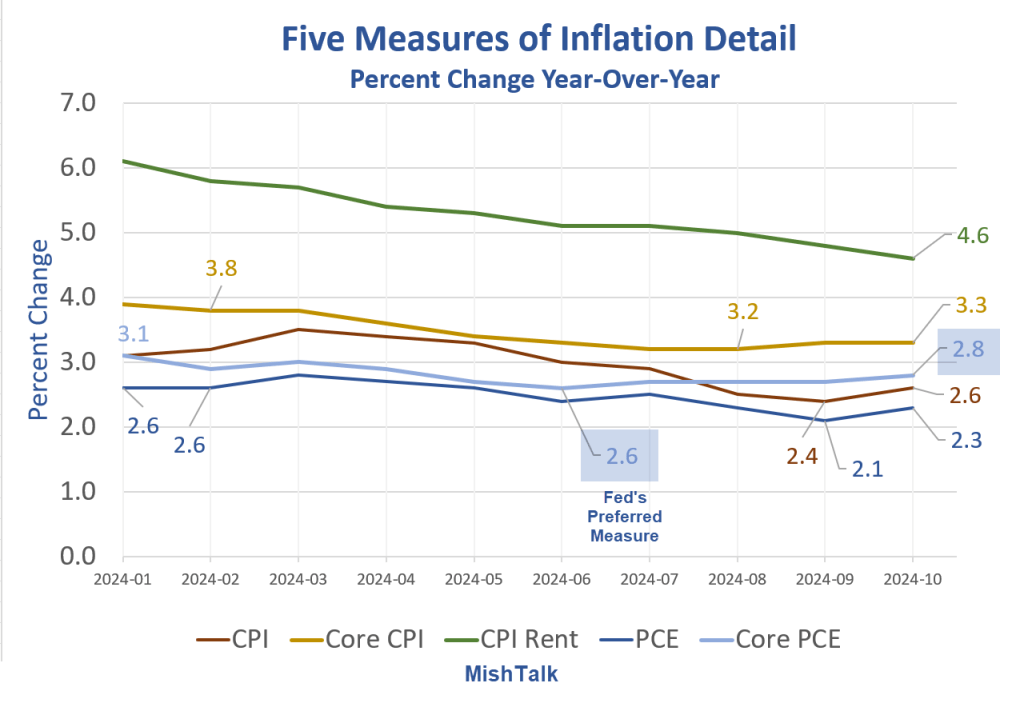Following the BEA’s release of PCE price inflation, let’s discuss inflation.

PCE vs CPI
The PCE price index is the Fed’s preferred measure of inflation.
PCE includes prices paid on behalf of consumers such as Medicare and corporate health insurance.
The CPI only counts items directly paid by consumers.
As a result of those methodology differences, the CPI overweighs rent while the PCE overweighs health care.
Both indexes are flawed because neither includes home prices, only rent. In general, inflation matters, not just consumer inflation.
Five Measures of Inflation Detail

The Fed has made no progress, negative progress actually in Core PCE, its preferred measure of inflation.
Bear in mind, neither the CPI nor PCE directly factor in home prices but they both factor in rent.
Importantly, the CPI overweighs rent while the PCE overweighs health care. And the Fed is more concerned about services than goods.
Real Spending Rises 0.1 Percent, Real Disposable Income Up 0.4 Percent
I discussed PCE prices this morning in Real Spending Rises 0.1 Percent, Real Disposable Income Up 0.4 Percent
Let’s recap the key PCE details.
Within services, the largest contributor to spending was the increase was health care (both hospitals and outpatient services).
Excluding food and energy, the PCE price index increased 0.3 percent.
Trump Inflation on the Horizon
Trump is threatening huge increases in tariffs which is inflationary.
November 25: Trump Threatens 25 Percent Tariffs on Mexico and Canada on Day One
Trump says he will unilaterally scrap his own allegedly “Best in History” trade deal with huge tariff hikes on our top two trading partners. Is this constitutional?
November 27: What Industries Will Suffer the Most Under Trump’s Plan to “Make Tariff’s Great Again”?
Trump is upping the rhetoric on Mexico, Canada, and China on top of previous tariff threats. Who will be hardest hit?
If you think Trump will do anything about the deficit, you are delusional. And Tariffs will increase inflation in a stagflationary way.
Unless you believe in a very hard recession to collapse demand, you have the answer to my lead question.
